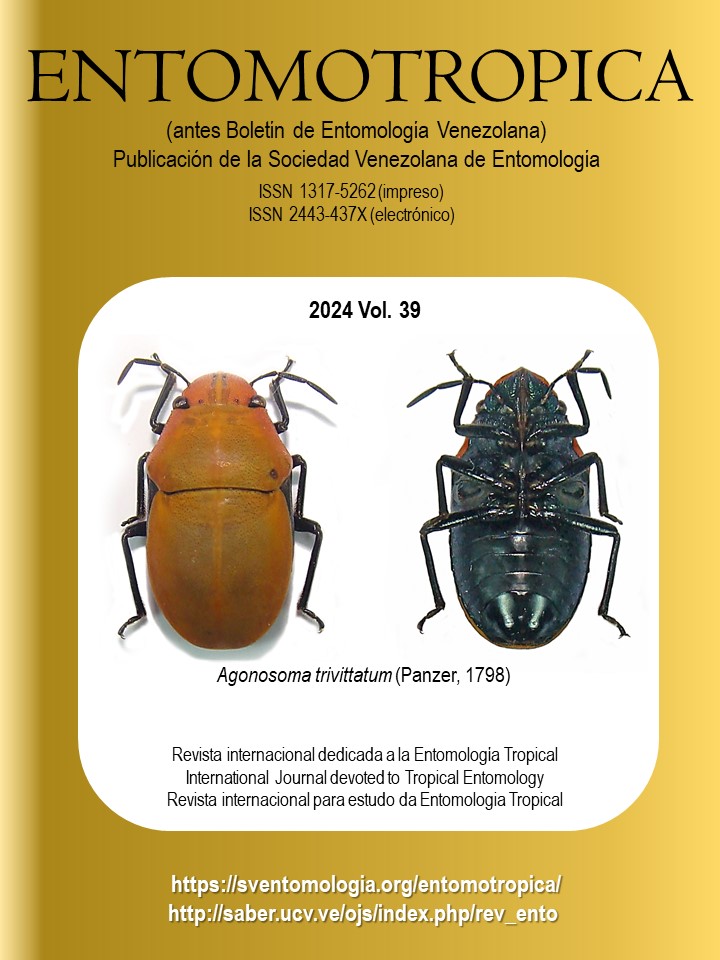Euglossini orchid bees in Panama: a state of the art review
Resumen
Euglossini, or orchid bees, are Neotropical bees known for their fragrance harvesting behavior. This review, done by experts and conducted under Preferred Reporting Items for Systematic Reviews and Meta Analyses guidelines, summarizes four decades (1966-2022) of literature on their biology in Panama, including taxonomy, ecology, behavior, and conservation. Research has mostly explored floral preferences, learning behaviors, and the impact of resource availability on foraging. Orchid flowering phenology matches peaks of male bee abundance. Over 50 new species have been described, with variations in species composition across hábitats and seasons. There is a higher genetic polymorphism in colonial genera, and a debate on diploid males and social evolution. Studies have focused on colonial social structure, parasites, fragrance harvesting, geographic variation, and nesting behavior. Phylogenetic analyses have shed light on social behavior evolution, and comparative phylogeography has indicated recent speciation. Physiology has linked body mass and flight performance. There are conflicting reports on higher biodiversity in the understory versus the canopy. Population changes are influenced by environmental and anthropogenic factors. Molecular phylogenetics has dated bee diversification to 27-42 million years ago. Flight muscle membrane composition has been linked to metabolic rate evolution, and historical nest remnants have aided floristic diversity reconstruction. Long-term monitoring indicates a stable or increasing species diversity, despite climate change. Research in Panama has provided a vast field of knowledge on these bees, deepening our understanding and justifying their protection in the Neotropical region. Urgent research is needed on Euglossini bee genetics, fragrance roles, orchid pollination, metabolic rates, climate impacts, plant-pollinator dynamics, evolutionary history, and effective conservation strategies.
Descargas
Descargas
Publicado
Número
Sección
Licencia

Esta obra está bajo una licencia internacional Creative Commons Atribución-NoComercial-SinDerivadas 4.0.

